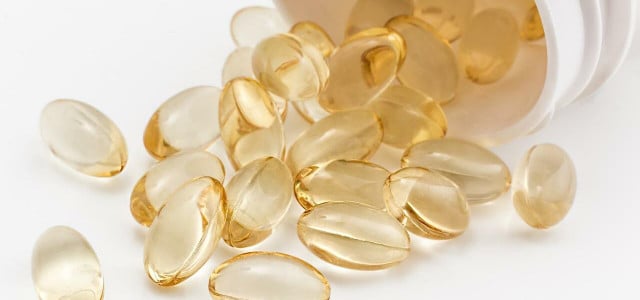It’s an increasingly common supplement, but what is collagen good for? Read more to see the variety of benefits of collagen, from bone and heart health to longer hair and nails.
Collagen is the most common protein produced by the human body. It’s essential to structuring and connecting the body’s cells. Collagen is found in the skin, muscles, ligaments, bones and tendons. There are 28 known types of collagen, but those most commonly found in the body are types one through four. The first type of collagen is found in all connective tissues, making up over 90 percent of all collagen in the body. Type two is in the joints and intervertebral discs. Type three is in the skin and blood vessels, and the fourth type is part of the kidneys, inner ears and eye lenses.
In recent years, collagen has been more readily used in the form of skincare products, cosmetic fillers, wound dressing, tissue regeneration, medical treatments, and most commonly, supplements. This highly versatile protein is produced by the human body naturally, but collagen loss occurs over time as well. While some collagen loss can be mitigated by making some lifestyle changes, others may need supplements.
If you have a poor diet and sedentary lifestyle, collagen loss can be decreased by simply eating lots of fruits and vegetables, not smoking, and increasing physical exercise. Others have seen collagen loss due to pregnancy, menopause, aging, and excess sun exposure, in which case your doctor may advise supplements. Collagen supplements have already been broken down into the amino acids necessary for the body, so they are easy absorbed and very effective. There are many benefits to adding collagen supplements to your diet and helping your body boost collagen production.
Benefits of Collagen Supplements

- Skin: Collagen helps keep skin hydrated, elastic and resilient. This is especially helpful in preventing signs of aging, as humans naturally produce less collagen as they get older. Collagen supplements can provide anti-aging benefits.
- Hair and nails: Collagen supplements can increase the strength of both hair and nails. This helps to grow hair and nails longer, as they are stronger and more elastic, preventing breakage and allowing for growth.
- Joint pain: Collagen helps maintain bone structure. Through the aging process, collagen loss can contribute to joint pain and stiffness, as well as osteoarthritis. Collagen supplements can mitigate this. Research shows that taking about ten grams of collagen per day can make a difference.
- Bone health: Collagen also structures bones and keeps them strong. Aging often leads to low bone density and increased risk of fractures and breaks, partially due to collagen loss. Research shows that collagen supplements can lower bone breakdown, decreasing risk of osteoporosis.
- Muscle mass: Because collagen makes up skeletal muscle tissues, supplements are effective for gaining and maintaining muscle. Supplements are often taken for this reason both by body builders and aging individuals.
- Heart health: Collagen helps reduce risk of heart conditions by providing needed structure and elasticity to the arteries.
Taking Collagen



There are many easy and convenient ways to supplement your diet with collagen. While many people take collagen in the form of a pill or a capsule, it’s also available in liquid and powder forms. Because it’s highly soluble and mild in taste, collagen can easily be mixed into foods and drinks. Sprinkle it into your morning tea and you’re good to go! Just make sure to consume lots of Vitamin C in your diet, as this is needed for collagen synthesis. Citrus fruits, broccoli, bell peppers, tomatoes, cabbage and strawberries are all high in Vitamin C.
Keep in mind there are some downsides to collagen supplements. Unfortunately, collagen is often derived from animal tissues, so make sure to watch out for that if you’re vegan or vegetarian. This may also pose problems for individuals with fish, shellfish or egg allergies. If you’re looking for vegan collagen supplements, check these out on Amazon**.
There are possible negative digestive side effects to taking collagen supplements, but they are typically very mild. If you are taking collagen supplements for the first time, it’s best to start with a very small dosage and keep an eye out for any side effects. Talk to your doctor if you have any concerns.
Read more:
- Chlorella vs. Spirulina: What’s the Difference? A Closer Look
- Too Much Vitamin B12? When it’s Getting Harmful
- What Does Activated Charcoal Do? 7 Uses in Health & Household
Important Information regarding Health-related Topics.
** Links to retailers marked with ** or underlined orange are partially partner links: If you buy here, you actively support Utopia.org, because we will receive a small part of the sales proceeds. More info.Do you like this post?






